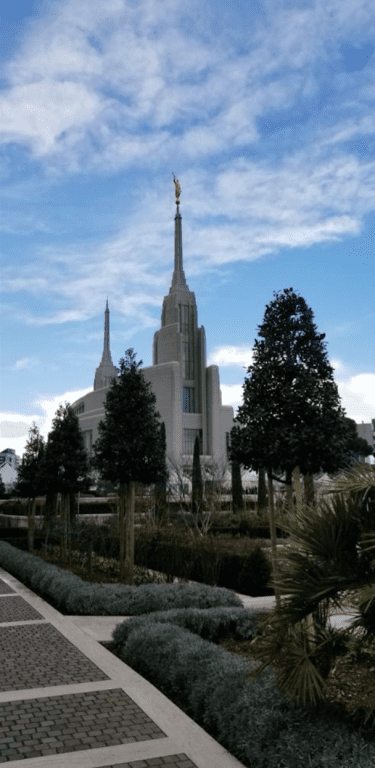
I’ve posted already about Father Georges Anawati OP, my wonderful private Islamic philosophy tutor in Cairo during my student days there.
One day, while I was with reading through a text with him at the Institut Dominicain des Etudes Orientales in Cairo, it suddenly hit me how wildly unlikely it was that the claims of the Church of Jesus Christ of Latter-day Saints were uniquely true. Here I was, studying the sophisticated intellectual products of one of the world’s great religions, Islam, with a Dominican priest and monk, an internationally prominent scholar, theologian, and philosopher, who, as such, was a sophisticated representative of another of the world’s great religions, Catholic Christianity. Greater Cairo alone was 15-20 times the size of the metropolitan Salt Lake City area.
Islam, as we know it, is nearly a millennium and a half old. Catholicism claims a heritage of two thousand years. By contrast, at the time that I was studying with Father Anawati, the Restoration was about a century and a half old. For most of that time, our people had been isolated in the Great Basin West, preoccupied with digging irrigation canals and building small towns in a demanding, remote, semi-arid landscape.
Provincial and few in number, we had made few if any notable contributions to world culture. Thomas Aquinas, Ibn Sina, Albertus Magnus, al-Farabi . . . No Latter-day Saint has yet managed to enter that pantheon, even today. Nor even close.
The audacity of Latter-day Saint claims seemed breathtaking.
And yet . . . And yet . . . It occurred to me almost immediately that my feelings at that moment must not be altogether different from those that an early Christian might have held at roughly the dawn of the third century. In 200 AD, Michelangelo, Dante, Augustine, Milton, Handel, Kierkegaard, and the host of other great Christian thinkers, composers, writers, and artists yet to come were still far, and sometimes very far, in the future — and, in a sense, essentially inconceivable.
The mood passed quickly. But I’ve never forgotten it. However, I don’t worry about the issue much. Have we climbed to the summit of world culture and science yet? Probably not. But good things will come, in their time.
“We will yet have Miltons and Shakespeares of our own,” predicted the future apostle Orson F. Whitney in June 1888. “God’s ammunition is not exhausted. His brightest spirits are held in reserve for the latter times. In God’s name and by his help we will build up a literature whose top shall touch heaven, though its foundations may now be low in earth. Let the smile of derision wreathe the face of scorn; let the frown of hatred darken the brow of bigotry. Small things are the seeds of great things, and, like the acorn that brings forth the oak, or the snowflake that forms the avalanche, God’s kingdom will grow, and on wings of light and power soar to the summit of its destiny.”










